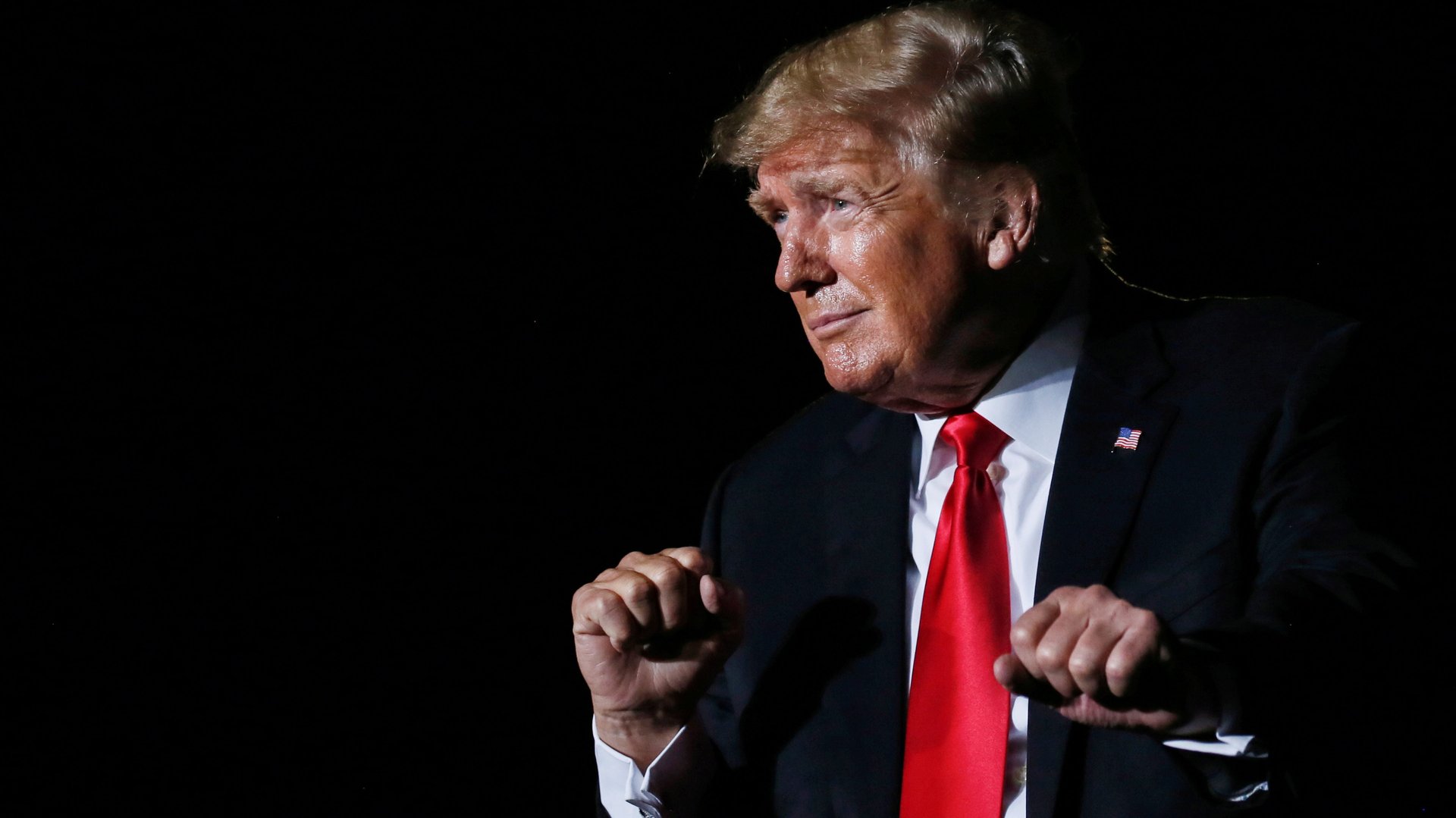The SPAC behind Donald Trump’s new media venture could be the next meme stock
Shares of a special-purpose acquisition company (SPAC) created to fund former president Donald Trump’s new media venture surged 400% after debuting on the stock market today (Oct. 21). By 1:49pm eastern time trading of the SPAC, called Digital World Acquisition Corp. (DWAC), had been halted five times due to volatility, and by 4pm it had climbed to $45.60 from its opening price of $12.73.


Shares of a special-purpose acquisition company (SPAC) created to fund former president Donald Trump’s new media venture surged 400% after debuting on the stock market today (Oct. 21). By 1:49pm eastern time trading of the SPAC, called Digital World Acquisition Corp. (DWAC), had been halted five times due to volatility, and by 4pm it had climbed to $45.60 from its opening price of $12.73.
An SEC filing for the former president’s now-public media company, Trump Media and Technology Group, says that the venture will compete with the “liberal media consortium,” as well as major social media companies. The company said it intends to create its own social media network, Truth Social, to fight back against what it views as efforts to silence Trump. The former president has been barred from using Facebook and Twitter since his accounts were shut down following the Jan. 6 attack on the US Capitol, which was in part provoked by his messaging on the platforms.
By funding the media deal through a SPAC, which are sometimes called “blank-check companies,” Trump avoided some of the scrutiny that comes with traditional IPO filings, which require more due diligence from firms looking to go public. SPACs have grown tremendously popular over the past year and have been used to fund the business ventures of Trump affiliates like Wilbur Ross and Larry Kudlow. But they’re also a riskier investment.
Trump’s meme stock could burn investors
Soon after Trump’s SPAC hit the stock market it attracted chatter in online forums like Reddit’s WallStreetBets and the chatroom Stocktwits, which helped boost shares of companies like AMC and GameStop over the summer.
These meme stocks, whose internet virality helps their market value surge, behave much like Trump’s company did today.
With the deal finalized, Trump now has access to $290 million from DWAC, the acquisition company. The company, which has offered scant details in its filings about how it will turn a profit, could be a risky bet for investors. And the president has a track record of luring investors with risky business bets well before meme stocks existed. A CNN analysis found that someone who invested $100 in Trump’s hotels and casinos in 1995 would have lost 90% of their money by 2000, leaving them with just $8.72.